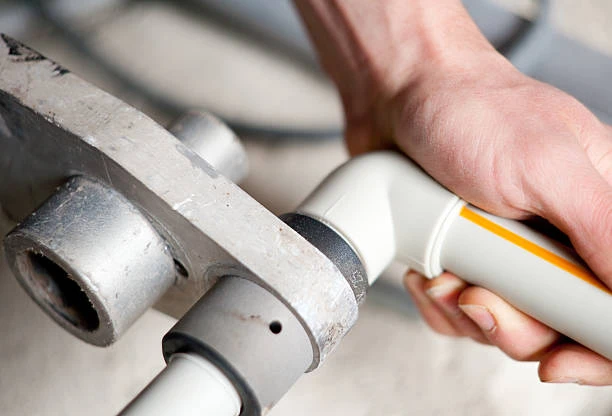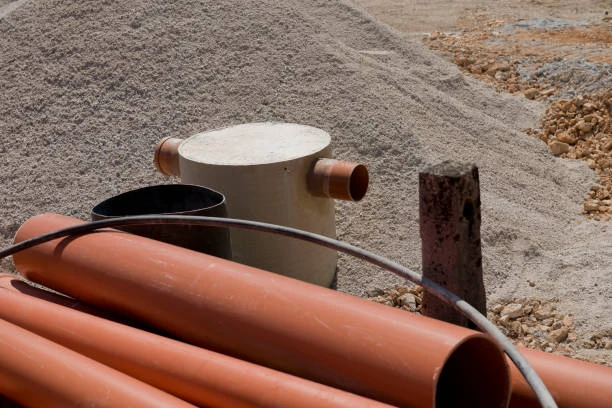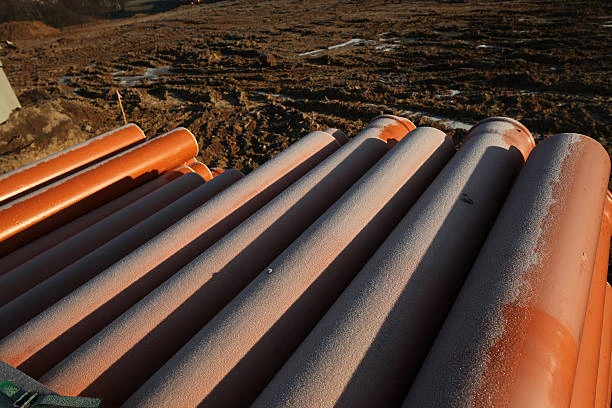When it comes to underground water distribution systems, choosing the right materials for pipes and fittings is essential to ensure durability, efficiency, and safety. CPVC water pipe fittings have emerged as an excellent solution for underground installations, offering a combination of high performance, resistance to environmental factors, and cost-effectiveness. In this article, we will explore why CPVC water pipe fittings are ideal for underground applications, discuss their benefits, and how they compare to other materials, including UPVC.
What Makes CPVC Water Pipe Fittings Ideal for Underground Use?
CPVC is a type of plastic pipe that manufacturers chlorinate to improve its heat resistance and chemical stability. Contractors widely use CPVC water pipe fittings in both residential and commercial underground systems, including water supply, irrigation, and sewage systems. Below are the key reasons why CPVC pipes and fittings are ideal for such applications.
1. High Temperature Resistance
One of the primary advantages of CPVC over other types of plastic pipes like UPVC is its superior heat resistance. CPVC can withstand water temperatures up to 200°F (93°C), making it an excellent choice for applications that involve hot water. In underground applications, this resistance to higher temperatures allows contractors to use CPVC in a variety of systems, including heating systems, hot water distribution, and other industries where thermal stability is critical.
2. Corrosion and Chemical Resistance
CPVC water pipe fittings are highly resistant to corrosion, a major issue in traditional metal piping systems. Metal pipes, when buried underground, can degrade over time due to exposure to water and environmental factors, leading to leaks and costly repairs. CPVC, however, is not susceptible to rust, scaling, or pitting, which ensures that underground systems maintain their integrity for much longer. Furthermore, CPVC is resistant to a wide range of chemicals, including acids, bases, and salts, which makes it ideal for handling water that may be chemically aggressive, such as wastewater or irrigation systems.
3. Durability and Longevity
CPVC pipes are known for their long lifespan, which can exceed 50 years in many cases. This is particularly important for underground applications where replacing or repairing pipes can be costly and disruptive. CPVC is tough and resilient, capable of withstanding external pressures from soil compaction, temperature fluctuations, and even minor impacts without cracking or breaking. This durability ensures that underground water systems function smoothly and efficiently over the long term, minimizing the need for repairs.
4. Smooth Internal Surface
CPVC water pipes and fittings have a smooth internal surface that minimizes friction during water flow. This smoothness reduces the buildup of sediments, minerals, and other debris, which can cause blockages or reduced water flow over time. In underground systems, where maintenance can be difficult and costly, the smooth interior of CPVC pipes ensures that they continue to operate at optimal capacity without frequent cleaning or inspections.
5. Resistance to UV Radiation
Although CPVC pipes are typically used underground, they can be exposed to sunlight during installation or at certain junction points. Unlike other materials that may degrade or become brittle when exposed to UV rays, CPVC is resistant to UV radiation. This makes CPVC an ideal choice for underground applications where parts of the system may face light exposure or where installers need to place pipes in areas with varying soil depth and sunlight exposure.
6. Lightweight and Easy to Handle
CPVC water pipe fittings are much lighter than metal alternatives, such as copper or steel pipes. This makes handling, cutting, and fitting CPVC pipes easier during installation, reducing labor costs and the time required to complete an underground water system project. The lightweight nature of CPVC also means that there is less risk of damage during transportation or installation, ensuring the material remains intact and functional.
7. Cost-Effectiveness
CPVC is more cost-effective than many traditional piping materials, including copper and steel. While initial installation costs may vary depending on the specific project, CPVC’s long lifespan, low maintenance requirements, and reduced need for repairs make it an economical option in the long run. The cost-effectiveness of CPVC water pipe fittings makes them a popular choice for both residential and commercial underground water systems.
8. Ease of Installation
Installing CPVC water pipe fittings is relatively simple compared to other materials. You can connect them using solvent cement, which forms strong, durable joints that resist leaks. CPVC fittings are available in a variety of sizes and configurations, making it easy to customize the system to meet the needs of the installation. Additionally, the low weight of CPVC pipes reduces the need for heavy equipment, lowering labor and transportation costs.
9. Environmentally Friendly
CPVC is an environmentally friendly material because it is fully recyclable. Unlike metals that require mining and can contribute to environmental degradation, manufacturers create CPVC pipes from a readily available synthetic resin that people can reuse once the pipes reach the end of their service life. Furthermore, the long lifespan of CPVC pipes means that users need fewer replacements, which results in less waste and a lower environmental impact over time.
Applications of CPVC Water Pipe Fittings in Underground Systems
CPVC water pipe fittings are used in a wide range of underground applications, including:
1. Residential Water Systems
In residential settings, CPVC is used for both cold and hot water distribution. Its high-temperature resistance makes it ideal for use in hot water systems, and its durability ensures long-lasting performance even in buried applications. Many homeowners choose CPVC for underground installations because of its low cost and ease of installation.
2. Industrial Applications
In industrial settings, CPVC is commonly used for transporting chemicals, wastewater, and other fluids. Its resistance to a wide range of chemicals and its high heat tolerance make it an excellent choice for underground pipelines that need to handle harsh materials or environments.
3. Agricultural and Irrigation Systems
Irrigation systems often require piping that can handle water with varying levels of temperature and chemical content, such as water treated with fertilizers or pesticides. CPVC water pipe fittings are perfect for these applications because they are resistant to chemicals and can withstand higher water temperatures. Their durability and resistance to environmental pressures make CPVC a reliable choice for underground irrigation systems.

4. Sewage and Drainage Systems
CPVC is also used in underground sewage and drainage systems. Its corrosion resistance ensures that it will not degrade over time, even when exposed to waste products or aggressive chemicals found in sewage. The smooth internal surface also prevents blockages and ensures efficient flow within the system.
Conclusion
CPVC water pipe fittings offer significant advantages for underground applications. From their high temperature resistance to their durability, chemical resistance, and low maintenance requirements, CPVC pipes are an ideal choice for residential, industrial, and commercial water distribution systems. The material’s long lifespan, smooth internal surface, and cost-effectiveness make it a valuable investment for both new installations and upgrades to existing underground water systems.
By opting for CPVC water pipe fittings, you ensure that your underground water distribution system remains efficient, reliable, and cost-effective for years to come.
Frequently Asked Questions (FAQs)
1. What is the difference between CPVC and UPVC pipes?
CPVC is designed for high-temperature applications and handles water temperatures up to 200°F (93°C), whereas UPVC (Unplasticized Polyvinyl Chloride) works best in cold water systems. CPVC is also more resistant to chemical exposure than UPVC.
2. Can CPVC pipes be used for drinking water?
Yes, CPVC pipes are NSF-approved for use in potable water systems, making them safe for drinking water distribution in residential and commercial applications.
3. How long do CPVC water pipe fittings last?
CPVC pipes can last for 50 years or more, depending on the installation environment and the type of water they carry. Regular maintenance and proper installation contribute to their longevity.
4. Are CPVC pipes suitable for outdoor use?
CPVC pipes can be used outdoors if buried underground. If exposed to direct sunlight, CPVC may degrade over time, so it is advisable to protect it with UV-resistant coatings or bury it to avoid UV exposure.
5. How do I install CPVC water pipe fittings?
CPVC pipes and fittings are typically joined using solvent cement, which bonds the pieces together. Proper preparation of pipe ends and the correct application of solvent cement are essential to ensure strong, leak-proof connections.


















